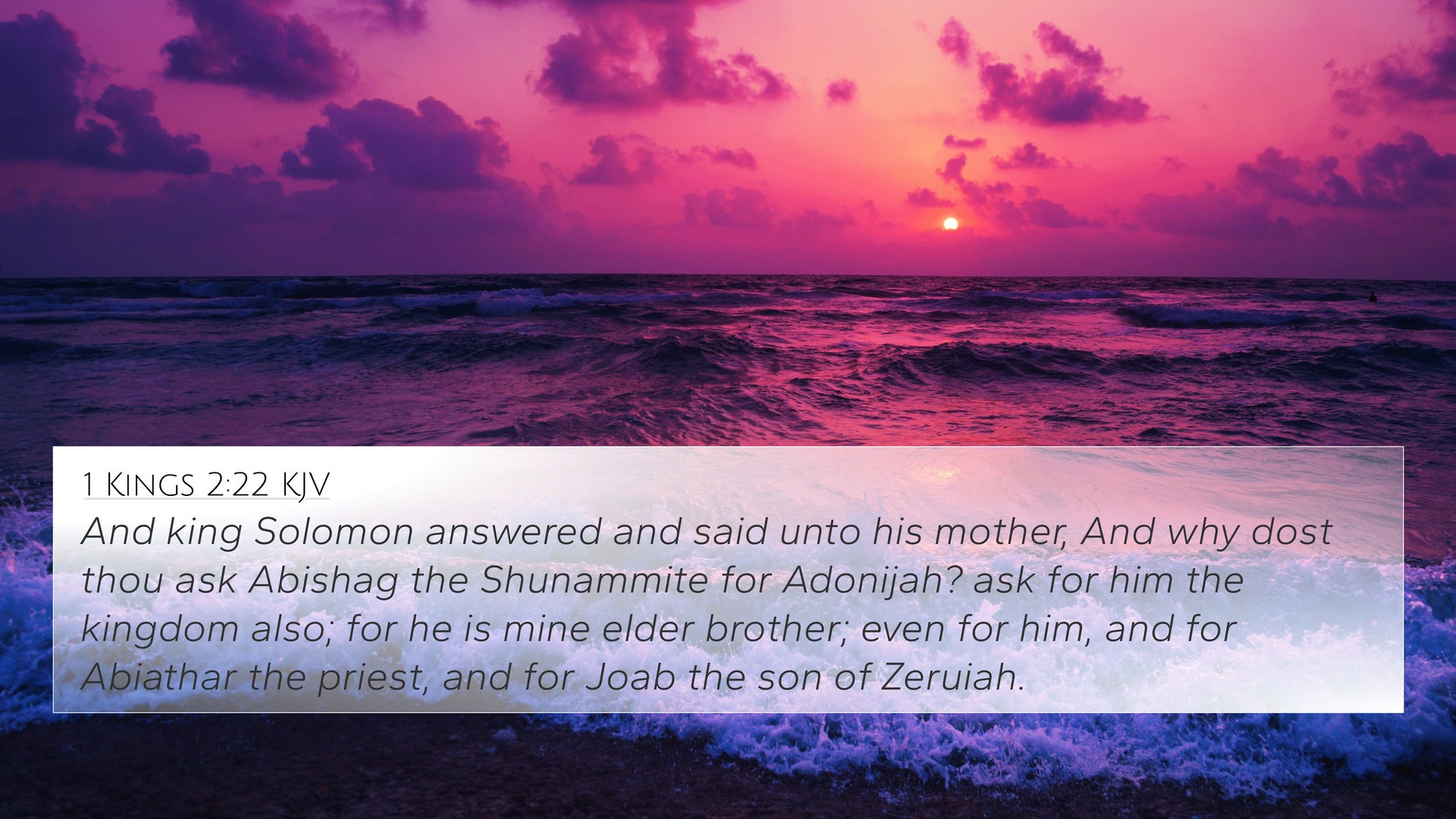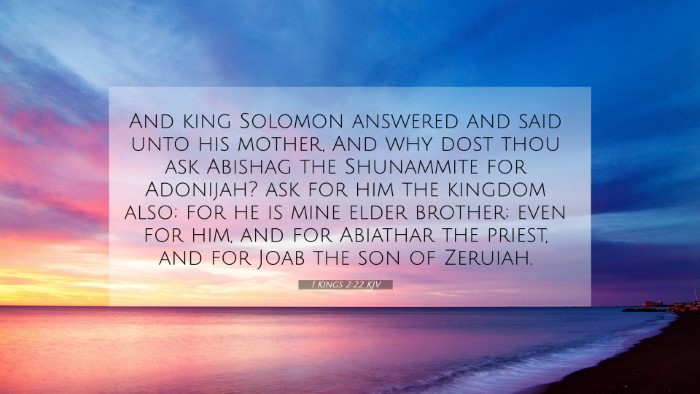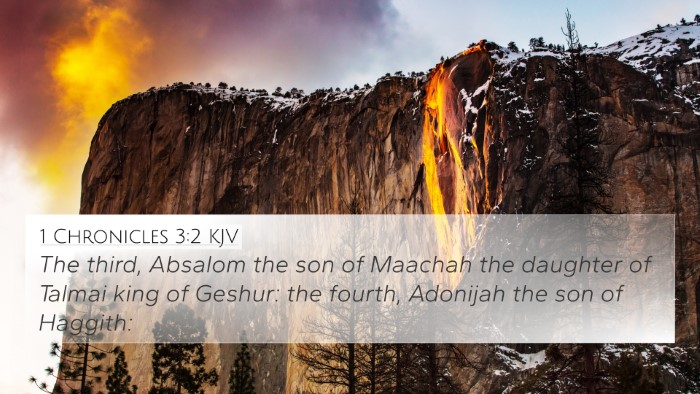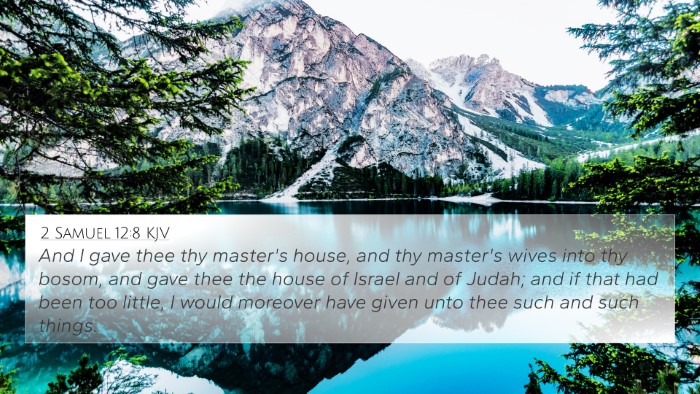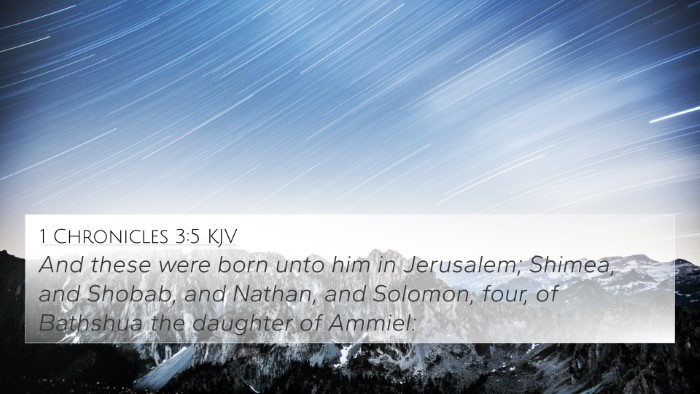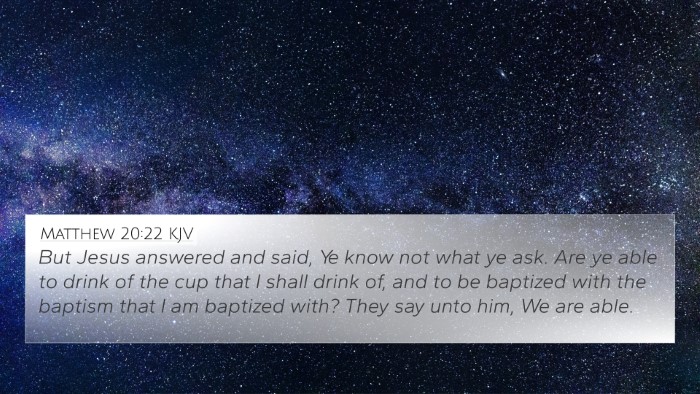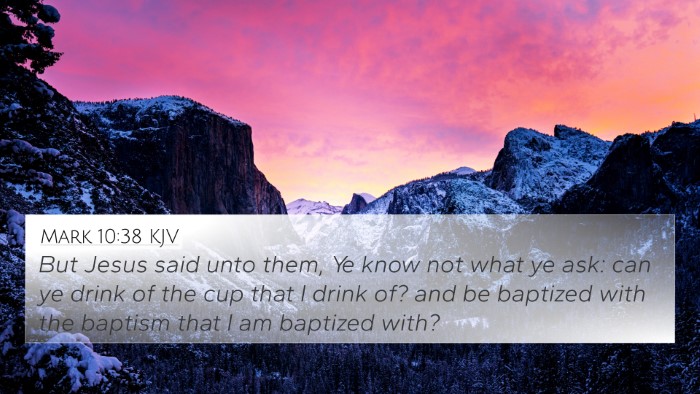Understanding 1 Kings 2:22
1 Kings 2:22 states: "But King Solomon answered and said to his mother, 'Now why do you ask Abishag the Shunammite for Adonijah? Ask for him the kingdom also—for he is my older brother—For him, and for Abiathar the priest, and for Joab the son of Zeruiah.'"
This verse occurs within a significant transitional phase of Israel's monarchy as Solomon steps into power. To understand this verse fully, it is essential to reflect on the context and implications of Solomon's response. The following sections summarize insights and interpretations from public domain commentaries.
Context and Background
The backdrop of 1 Kings 2 involves the political intrigue of Solomon’s ascension to the throne following the reign of his father, King David. Adonijah, Solomon’s older brother, had attempted to claim the throne prior to Solomon’s anointment. In this verse, Abishag, a beautiful young woman who cared for David in his old age, becomes a point of contention.
Commentary Insights
-
Matthew Henry:
Henry points out that Solomon's strong response reflects his wisdom and political awareness. By bringing attention to Adonijah’s desire for the kingdom through Abishag, he highlights the seriousness of his brother's ambition. Solomon's reaction signifies a protective stance over his newly established reign and serves as a warning to Adonijah about his intentions.
-
Albert Barnes:
Barnes emphasizes Solomon's discernment in dealing with familial tensions. He notes that the request touched upon issues of legitimacy and claim to power, showcasing the ethics of leadership during a time of uncertainty. Solomon’s refusal to grant Adonijah's request shows his commitment to maintaining order and his rightful authority as king.
-
Adam Clarke:
Clarke delves into the implications of familial relationships in governance. He interprets Solomon’s response as a recognition of the delicate nature of power dynamics and the need to navigate them with grace. Adonijah’s ambition, coupled with the involvement of other influential figures like Abiathar and Joab, suggests the complexity of Solomon's political landscape.
Thematic Connections
This verse opens a discussion on themes of authority, legitimacy, and familial loyalty. Solomon's response can be seen as a reflection of God’s sovereignty, demonstrating how human motives can intertwine with divine purpose. This grandmotherly request signals not only personal desires but also the broader struggle for political power.
Cross-References
To deepen understanding, consider the following Bible verse cross-references that relate to 1 Kings 2:22:
- 2 Samuel 12:1-11 - God’s judgment on David’s household, highlighting the consequences of ambition.
- 1 Chronicles 22:5-13 - Solomon is prepared for the temple, emphasizing his role in God's plan.
- 1 Kings 1:5-6 - Adonijah's ambition to claim kingship before Solomon’s official declaration.
- Proverbs 25:5 - The need for justice and the removal of the wicked from the presence of the king.
- Ecclesiastes 3:1-8 - Discusses the time for everything, resonating with Solomon's wisdom in timing and authority.
- 1 Kings 2:15 - Adonijah clearly wanted the throne, indicating the grip of personal ambition.
- Matthew 5:9 - The call for peacemakers, contrasting the conflicts in 1 Kings.
- Romans 13:1-2 - The principle of submission to governing authorities and their divine appointment.
- James 4:1-3 - Explains the conflict driven by desires, reflecting on motivations behind Adonijah’s request.
- Acts 1:24-26 - The process of selecting God’s chosen leaders in an uncertain situation.
Conclusion
The verse encapsulates deep theological, historical, and personal narratives, intertwining Solomon's wisdom with the broader narrative of divine intervention and human ambition. The analysis reveals the intricate layers of leadership, the weight of decisions, and the prophetic unfolding of God's promise to David through Solomon's reign.
Tools for Further Study
To explore cross-references and connections between Bible verses effectively, consider using the following resources:
- Bible concordance for finding specific words and related verses.
- Cross-reference Bible study guides to help navigate between passages.
- Comprehensive options like Bible cross-reference systems that categorize themes.
- Online tools for Bible cross-referencing to visualize connections between various scriptures.
How to Use Bible Cross-References
Learning how to identify and utilize cross-references within the Bible enhances understanding. Look for key themes, similar narratives, and direct quotes across both Old and New Testaments. This approach can illuminate spiritual truths and provide a holistic view of scripture.
